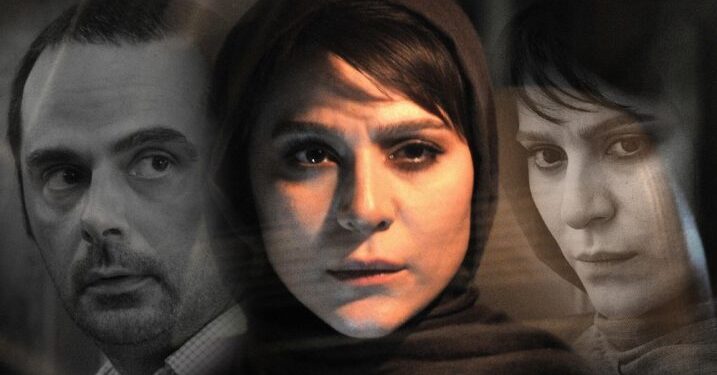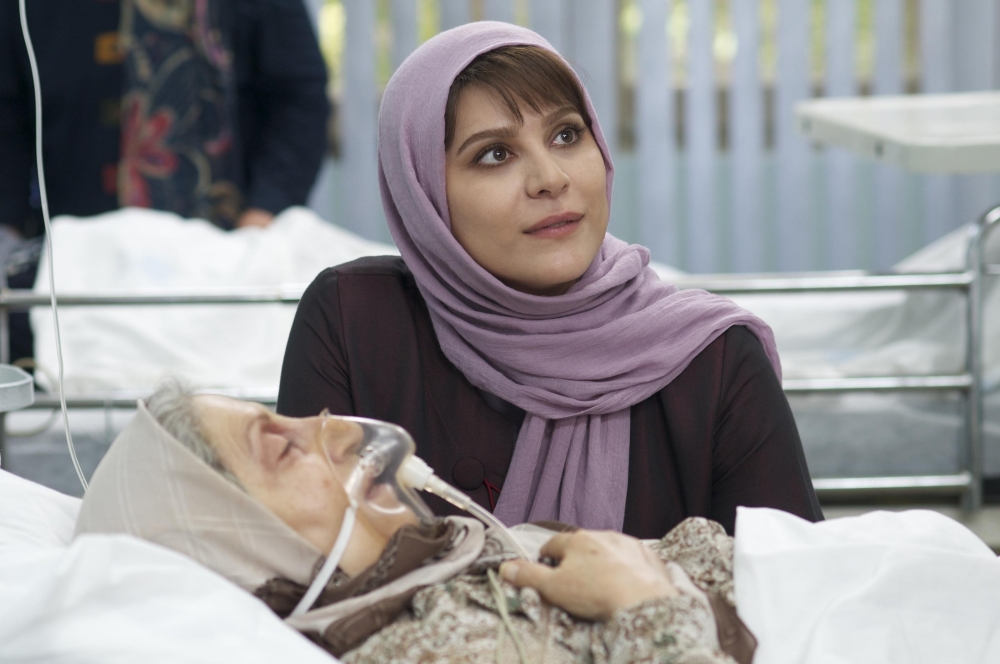Cannes Film Festival 2016 – A wind of freedom Or Inversion is an Iranian film, written and directed by Behnam Behzadi, with Sahar Dolatshahi, Roya Javidnia, Ali Mosaffa and Alireza Aghakhani in the main roles. This film is in competition in the section A certain look of this 69th Edition of the Cannes Film Festival.
The title of the film Inversion Referral to the state of “thermal inversion” in Tehran, capital of Iran, which suffers from great toxic atmospheric pollution. It is an oppressive situation for the inhabitants who are forced to live there. But in Inversionpollution triggers a family contention chain reaction which closes on heroin, Niloofar, until it forced it to find a new source of air.
Niloofar is a pretty young Iranian 35 years old. She has set up her own business, of a dozen employees, has her own car and even has a pretender. Everything seems to smile at him. His family seems united and happy.
Single, she lives with her mom Mahin (Shirin Yazdanbakhshshshsh), who suffers from a chronic pulmonary disease.
But here is that the mother has an asthma attack and the doctors are formal: she must leave Teheran, too polluted for her fragile lungs. She must even leave as soon as she gets out of the hospital.
Niloofar has a sister and a brother, both married. Unwittingly, they decide that she will leave to live with their mother in a house they have in the north of the country. They decided for her, without consulting her, without even informing her. They just made this decision for her. After all, Niloofar is only a single woman, without husbands or children, she only has to sacrifice herself for the family.
At first, Niloofar agrees to comply with this decision. She will leave with her mother. She makes arrangements for her workshop to remain open and plans to come from time to time inspecting the work. But surprise, her co -owner brother with her of the building, inherited from their father, in which the workshop is located, decided to rent it. He needs money and made the decision to rent the common good, once again without consulting his sister or even informing him. The fact that the workshop is in this building and that it represents years of work for his sister has no importance. That she derives her business income did not stop her either. He has debts, he must pay them, he is the man, he is the one who decides, and his sister only has to comply with his will!
Niloofar is dismayed. She feels trapped. His life escapes him. She realizes that her whole life is decided for her. She gets angry and faces her brother who threatens her. She finally decides to refuse that her family has this way and refuses to leave. She will find another room to transfer her workshop.
The older brother and sister do not understand this rebellion. They even refuse to consider finding a compromise. They threaten Niloofar and the summary to leave his accommodation, a inherited common good. Niloofar does not fold in the face of the threat. She takes her hand.
Heart rating is not joy either. She learns that her claim hid him that he had a son who lived with him. She understands that he wanted to put her before the fait accompli. She will want to break.
In fact, the film relates the rebellion of this young woman. She is intelligent, she is beautiful, she is financially independent. Professionally she also succeeds much better than her brother. But despite all this, the family wants to impose their decisions for him. It is as if you did not recognize your person, that we did not respect his choices. His individuality has no room in front of the family.
The film shows an Iranian company where the male is privileged, even if less competent. His more important part in the succession of his father gives him an advantage over his sisters and allows him to impose his decisions regarding the management of these inherited goods. Niloofar will end this. She will demand from her brother that he liquidate the succession and that he gives her his share.
But paradox of Iranian society, we see this strong woman, having character, no longer allowing herself to be done
At the end of the film, even if Niloofar will leave Tehran, she will no longer submit. She took her life in hand. She chose to accompany her mother, but demands that her brother and sister periodically come to replace her for a few days so that she can go about her own business. She also imposed the sharing of the succession to be the only one now to manage her own property. In reality she knew how to find the compromise herself which allows her to fulfill her family obligations, and at the same time to make her decisions, make her choices and continue to lead her life.
All the actors played their role very well. The choice of actress Sahar Dolashahi is excellent. She has the physique that suits the role. His face is laughing, his gaze is voluntary. It is full of life and this vitality is communicative.
The film is very balanced, at no time do we get bored, we are immersed in history and we accompany Niloofar in his journey. We understand with her that the only way to free up is her own will.
In addition, the film allows you to have an overview of Iranian society practically unknown in our countries. It also shows that unlike the image we have, the Iranian woman is not necessarily a submissive and erased woman. On the contrary, she has her own personality and can, thanks to her will, take care of herself, make her choices and assume them, even if she still remains locked in a legal and social framework which is very hostile to her.
Trailer:
Neïla Driss










